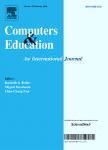版权所有:内蒙古大学图书馆 技术提供:维普资讯• 智图
内蒙古自治区呼和浩特市赛罕区大学西街235号 邮编: 010021

作者机构:Natl Chiao Tung Univ Inst Commun Studies 1001 Univ Rd Hsinchu Taiwan Natl Chiao Tung Univ Degree Program E Learning 1001 Univ Rd Hsinchu Taiwan
出 版 物:《COMPUTERS & EDUCATION》 (计算机与教育)
年 卷 期:2016年第96卷第May期
页 面:29-41页
核心收录:
学科分类:0401[教育学-教育学] 08[工学] 0812[工学-计算机科学与技术(可授工学、理学学位)]
基 金:Ministry of Science and Technology of Taiwan [NSC 103-2511-S-009-005-MY3]
主 题:Game-based learning Rogers' diffusion of innovations Non-adopters Lifestyles Innovation attributes
摘 要:The purpose of this study was to understand the factors that affected teachers adoption of game-based learning (GBL). In particular, this study paid special attention to the non-adopters who did not have any intentions to adopt GBL in the future and examined how these non-adopters differed from the early adopters, adopters and likely adopters. Based on Rogers diffusion of innovation model, this study identified three factors lifestyles, perceived attributes of GBL, and demographics as significant predictors for adoption. Two methods were adopted by this study: First, this study conducted 15 intensive interviews to construct questions regarding the perceived attributes of GBL. Second, using a purposive sampling method, this study mailed 347 questionnaires to teachers in Taiwan s elementary schools and obtained 307 valid questionnaires. Two conclusions were drawn from the data analysis: (1) lifestyles and perceived attributes exerted a strong effect, whereas demographics only had a moderate effect in discriminating non-adopters from adopters and likely adopters;(2) the non-adopters in this study were more likely to be males instead of females, to have more teaching experience, to be older, to have no experience with video games, and to be better educated. (C) 2016 Elsevier Ltd. All rights reserved.